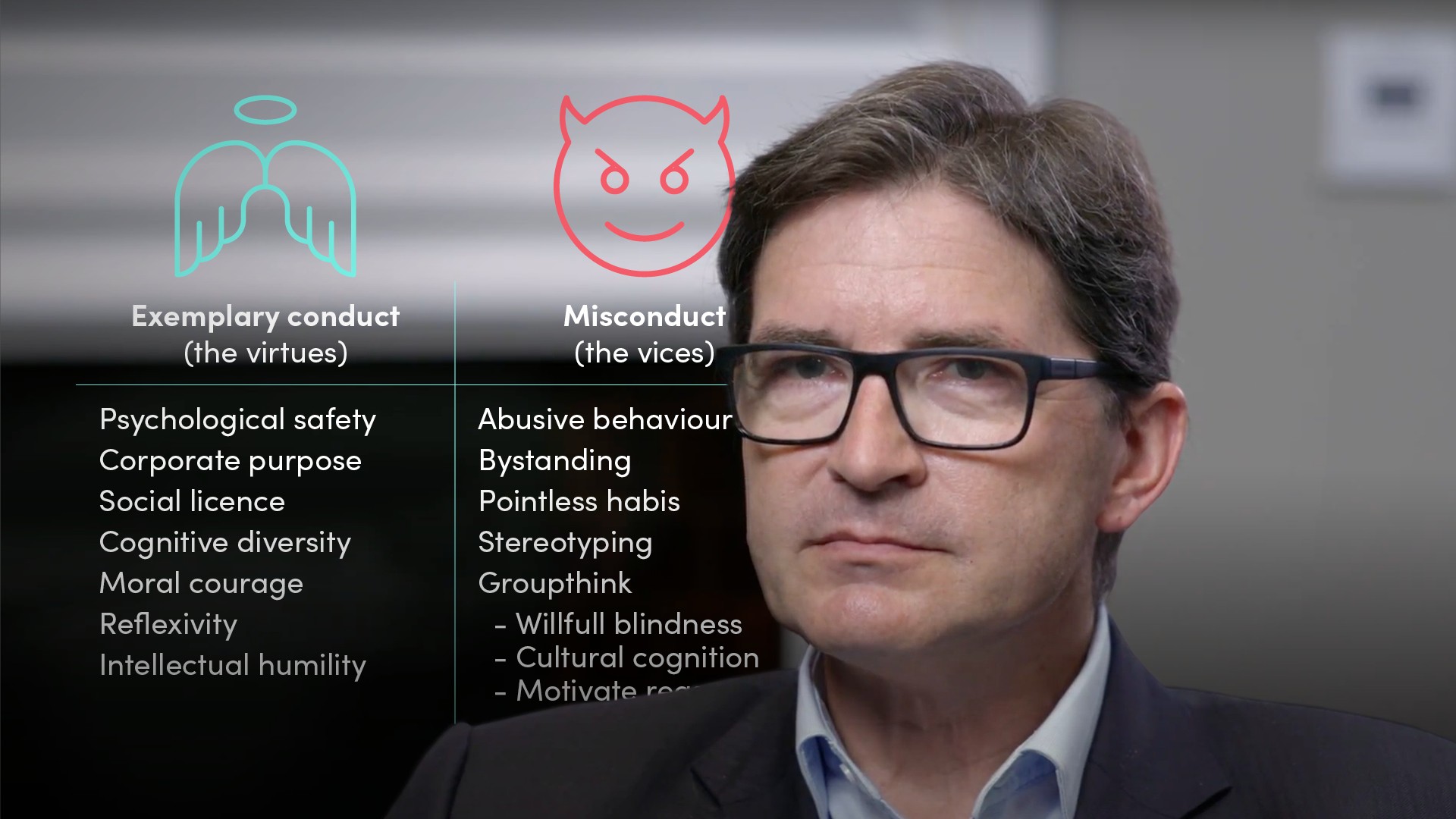
Conduct Measurement Indicators and Conduct Reporting

Roger Miles
25 years: Behavoural science & conduct
Roger identifies useful ways of gathering conduct MI through simple practical changes. For example, increasing conduct conversations by arranging more team meetings, and recognising and solving a bystanding culture. If cognitive diversity and psychological safety exist in the workplace, you will keep your best staff; spot problems sooner; and have more loyal, better quality clients.
Roger identifies useful ways of gathering conduct MI through simple practical changes. For example, increasing conduct conversations by arranging more team meetings, and recognising and solving a bystanding culture. If cognitive diversity and psychological safety exist in the workplace, you will keep your best staff; spot problems sooner; and have more loyal, better quality clients.
Subscribe to watch
Access this and all of the content on our platform by signing up for a 7-day free trial.

Conduct Measurement Indicators and Conduct Reporting
7 mins 11 secs
Key learning objectives:
Outline the ways of gathering data for psychological safety and bystanding culture
Understand some of the ways to increase the conduct conversations
Identify the two behavioural MIs that consistently correlate to enhance business value and exemplary conduct
Overview:
By using indicators such as psychological safety and cognitive diversity in the new Conduct MI these bring obvious benefits in terms of reducing routine business running costs but more importantly, it also delivers a big long-term boost to your retained value, the capital base of the business.
Subscribe to watch
Access this and all of the content on our platform by signing up for a 7-day free trial.
What is one way to start looking at conduct reporting?
Divide it into two columns. On one side, what regulators call exemplary conduct ‘the virtues’ which include psychological safety, moral courage, reflexivity, cognitive diversity and intellectual humility. On the other side, forms and events of misconduct ‘the vices’ which include abusive behaviour, bystanding, pointless habits, stereotyping and groupthink.
What is a useful way of gathering data for psychological safety?
Instead of running an elaborate and maybe unnerving all-staff survey, you could simply look at entries on the social website Glassdoor.com, where staff past and present are already writing up their frank appraisals of your business culture.
What is a useful way to know whether there is a bystanding culture in your business?
If you’re unsure whether you have a culture of bystanding (people tending to deny or dodge problems); see how many workarounds of various kinds are all around you in your business - people making creative dodges, cutting corners, using expedients to skip over a problem. This is often referred to as authorised deviations.
What academic research models can be used to import Conduct MI tools?
- Active Open-Mindedness Scale
- Implicit Association Test
- Culture Cognition
What is a simple practical change for assembling the new Conduct MI?
Senior managers should adjust their work diary to make time each week for conduct conversations (socialising risk learning). In general, this means getting into the useful habit of having informal, status-free conversations with people at all levels across the business.
What are some of the ways to increase conduct conversations?
- Arranging more Town Hall meetings
- Team meetings (challenge questions)
- Board and committee (blue-sky discussions) - for example “what if we didn’t do things this way”?
- Practice doing some managing by wandering about in physical or virtual space, go and talk to people in the business and ask them what's on their minds. This way you’ll get much better early signals of what's going right or wrong
Which two behavioural MIs consistently correlate to enhanced business value and exemplary conduct?
- Cognitive diversity
- Psychological safety
Whenever these two factors are present, you will keep your best staff; spot problems sooner and solve them better; innovate and build business, and have more loyal, better quality clients.
Subscribe to watch
Access this and all of the content on our platform by signing up for a 7-day free trial.

Roger Miles
There are no available Videos from "Roger Miles"



























